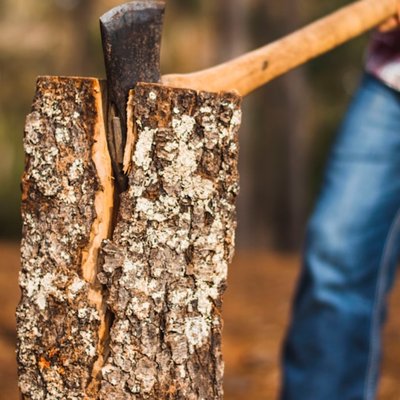- Diccionario
Estás viendo los resultados para use. Si quieres ver los resultados de to use, haz clic aquí.
100 verbos más usados
Guía de conversación
PREMIUM
Un verbo transitivo es un verbo que requiere de un objeto directo (p. ej. Yo compré un libro.).
c. ocupar (Latinoamérica)
Regionalismo que se usa en Latinoamérica: todos los países de Sudamérica, Centroamérica y el Caribe. No incluye España.
If you're not using this chair, can I take it?¿Si no estás ocupando esta silla, la puedo tomar?
2. (utilizar)
a. usar
I make an effort not to use too much electricity.Hago un esfuerzo para no usar demasiada electricidad.
b. consumir
You can't put regular gas in that car; it only uses diesel.No puedes ponerle gasolina normal a ese carro; solo consume diesel.
c. gastar (con sentido negativo)
Our refrigerator uses too much energy.Nuestro refrigerador gasta demasiada energía.
3. (tomar)
a. usar
More people are using certain drugs now that they are legal.Hay más gente usando ciertas drogas ya que son legales.
b. consumir (Latinoamérica)
Regionalismo que se usa en Latinoamérica: todos los países de Sudamérica, Centroamérica y el Caribe. No incluye España.
If you keep using drugs, you're going to ruin your life.Si sigues consumiendo drogas, te vas a arruinar la vida.
4. (explotar)
Un verbo intransitivo es un verbo que no requiere de un objeto directo (p. ej. El hombre estornudó.).
Un sustantivo es una palabra que se refiere a una persona, un animal, un lugar, un sentimiento o una idea (p. ej. hombre, perro, casa).
(m) significa que un sustantivo es de género masculino (p. ej. el hombre, el sol).
The use of computers in school is normal nowadays.El uso de las computadoras en las escuelas es normal hoy en día.
b. la utilización (F)
(f) significa que un sustantivo es de género femenino (p. ej. la mujer, la luna).
The use of agricultural waste products is an important government project.La utilización de los residuos agrícolas es un proyecto importante para el gobierno.
a. el uso (M)
(m) significa que un sustantivo es de género masculino (p. ej. el hombre, el sol).
My new knife has so many uses!¡Mi nueva navaja tiene tantos usos!
9. (consumo)
a. el consumo (M)
(m) significa que un sustantivo es de género masculino (p. ej. el hombre, el sol).
The use of drugs is harmful to your health.El consumo de las drogas es dañino para la salud.
10. (sentido)
a. el propósito (M)
(m) significa que un sustantivo es de género masculino (p. ej. el hombre, el sol).
I know you want to buy that purple fedora, but what use does it have?Ya sé que te quieres comprar ese sombrero de fieltro morado, ¿pero qué propósito tiene?
Ejemplos
Traductores automáticos
Traduce to use usando traductores automáticos
Conjugaciones
Palabra al azar
¡Tirar los dados y aprender una palabra nueva ahora!
¿Quieres aprender inglés?
¡Aprende inglés gratis!
Palabra del día
inglés.com es el diccionario, traductor y sitio web de aprendizaje inglés-español más popular del mundo.
El Dictionary Media Group de IXL Learning llega a más de 500,000,000 estudiantes cada año.
Copyright © 2026 Dictionary Media Group, Inc., una división de IXL Learning • Todos los derechos reservados.















